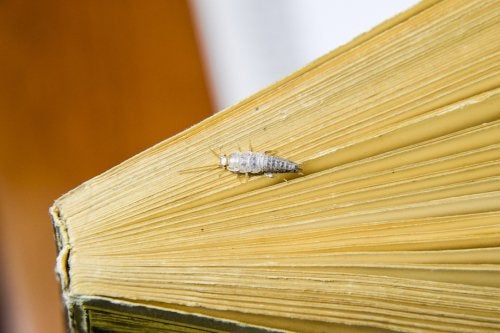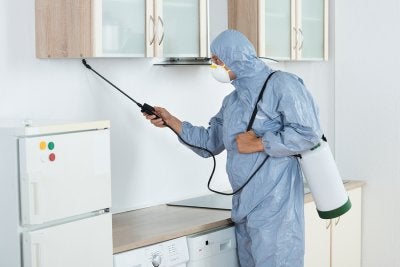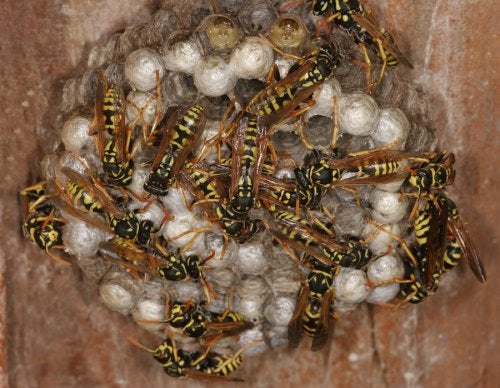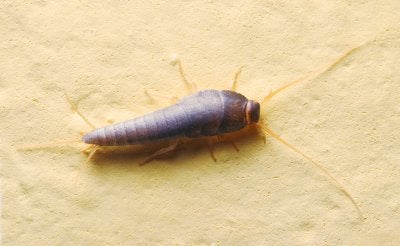-
What Are the Common Causes of Silverfish?
Silverfish are not dangerous pests, but they are certainly not pleasant to have in your home. If you are finding silverfish in your house, contact a residential pest control service in Pleasanton to have them removed. Getting regular pest control services can prevent silverfish from coming back, as can taking steps to make your home less attractive to them.
Silverfish are primarily attracted by moisture. If you are finding silverfish in your kitchen or bathrooms, check your pipes to see if you have a leak that is attracting them. They also like cardboard boxes, so consider using plastic storage boxes instead of cardboard. Silverfish are attracted to areas with crumbs and other food scraps as well as dust, so sweep your floor regularly and be sure to clear out your garbage on a regular basis. Combing these efforts with pest control services should help silverfish stay far from your home.

-
How to Keep Pests Out of Your Office Kitchen
When you share an office kitchen with coworkers, chances are that not everyone is going to have the same attention to cleanliness as you. That means that your space could be even more vulnerable to a pest infestation than your kitchen at home. Fortunately, you donât have to fear a pest invasion in your office kitchen, even if you have that one coworker who never cleans up. With a commercial pest control plan in your Pleasanton office, your kitchen at work can become a no-go zone for bugs. Try these strategies to get rid of ants, cockroaches, and more in the communal office kitchen.

Set Some Ground Rules
Your coworkers go in and out of the office kitchen all day to grab snacks, water, and coffee, and they may not always have a lot of time on their hands. That can set up a situation in which no one really cleans up after his or herself. Set some ground rules for the shared space that involve throwing away your trash, cleaning off counters youâve used, and tidying up tables after lunch. Pests love food that is left on the counter or tables that are covered in crumbs. Make following the rules part of your officeâs culture so that your kitchen is less appealing to pests.
Maintain a Pest Control Contract
Commercial pest control is a must for offices. Make sure your company has pest control services at regular intervals. Having these kinds of maintenance pest control treatments prevent infestations from ever getting started. If you do notice an increase in pests in the office kitchen at any point, make sure your pest control company knows, so that they can give it extra attention.
Look Outside the Kitchen
Despite your best efforts in the kitchen, if the other areas of your office are welcoming to pests, they will find their way in. Donât let old cups of tea or coffee sit on your desk, and reduce eating at your desk as much as possible. Clutter attracts pests, so keep your officeâs overflowing papers to a minimum.
-
What to Do When There Is a Wasp Nest on Your Property
Wasps are a common reason why people need summertime pest control near Dublin. If youâve spotted a wasp nest on your property, then itâs best not to attempt removal on your own, but to instead contact a professional pest removal service . This step is to help ensure both your safety and that of anyone nearby. Some individuals can have a severe or even fatal reaction to wasp stings, so itâs better to be safe in these situations.
The right pest treatment for the wasps on your property will depend on your preferences and needs, as well as the type of wasp that you have. Various species create different types of nests, and they build their nests in a variety of locations. Wasps inside walls are the most difficult to eradicate, and most attempts at removal that are made by inexperienced individuals only worsen the problem. For these reasons, if you hear buzzing coming from within your walls, then consider contacting a pest control company right away.

-
Exterior Risk Factors for Interior Pest Infestations
Has your home required pest treatment in the past? If so, then you may be wondering what you can do to help prevent future bug problems. One area that is often overlooked when it comes to pest control in Dublin is the area outside the home. Keep reading to learn what exterior risk factors can lead to indoor bug problems.

Debris
If you or someone in your family tends to lean objects against your homeâs siding or pile materials like compost, firewood, and lawn debris around your exterior walls, then you may be inviting pests into your home. First, objects propped up against your walls give bugs easier access to your home. Second, many insects view firewood, yard waste, and compost as shelter or food. After colonizing a pile of debris, the bugs may make their way into your home.
Moisture
One of the surest ways to make your home more attractive to pests is to have excess water on your property. Make sure that you have no dripping faucets and clean up any containers that may collect rain water. Also, if your yard remains soggy after a storm, then you should consider improving your propertyâs drainage system.
Garbage
If you store food waste in garbage cans in your yard, then this can serve as a food source for bugs and lead to roach and ant infestations. Ideally, trash cans should be stored in a secure shed or garage where bugs canât get to them. If this isnât an option, then inspect the bins for holes, including on the bottom, and ensure that their lids close tightly. Finally, store your trash cans as far from your home as possible and empty them regularly.
Foliage
The final factor to consider when evaluating your exterior risk factors for a bug infestation is your lawn care habits. Grass that is allowed to grow too tall, for example, provides shelter and shade for insects. Also, tree branches that make contact with your roof give bugs easy access to your home. For these reasons, consistent lawn maintenance should be a part of your pest control strategy.
RECENT POSTS
categories
- Uncategorized
- Weed Control
- Lawn Treatment
- Pest Control
- Performance Pest Management
- infographic
- Spider treatment
- Pest Management
- Commercial Pest Exterminator
- Residential Pest Exterminator
- Mice
- Tree Diseases
- tree disease treatment
- cockroaches
- Flea
- Fleas
- Ants
- Ant Infestation
- Bed Bugs
- Wasps
- Bees
- Stinging Insects
- Household Spiders
- Insects
- Tractor Mowing
- Earwigs
- Northern California
- Commercial Property
- Sow bugs
- Infestation
- Bugs Live
- DIY Pest Control
- Spider Silk
